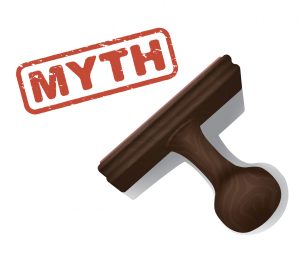Mythbuster: Is it true that pesticides or other chemicals sprayed on fruits and vegetables can trigger allergic reactions?
 Generally speaking no. Although it is possible, in rare cases, to be allergic to certain pesticides, an allergic reaction to fruits or vegetables is generally triggered by an overreaction of the immune system to a protein found in a given food. Once the immune system is primed to recognize that food as a threat, if an individual eats it again, the body will release a number of chemicals. These chemicals, such as histamine, cause symptoms like swelling, itchiness, and sneezing, among others. The most severe reaction, anaphylaxis, can be life-threatening.
Generally speaking no. Although it is possible, in rare cases, to be allergic to certain pesticides, an allergic reaction to fruits or vegetables is generally triggered by an overreaction of the immune system to a protein found in a given food. Once the immune system is primed to recognize that food as a threat, if an individual eats it again, the body will release a number of chemicals. These chemicals, such as histamine, cause symptoms like swelling, itchiness, and sneezing, among others. The most severe reaction, anaphylaxis, can be life-threatening.
In addition, allergic reactions can also be caused by oral allergy syndrome (OAS), also known as pollen-food syndrome. OAS can involve itchiness and/or swelling of the mouth area, and is caused by proteins in fruits or vegetables that are structurally similar to those found in pollens to which the individual has seasonal allergies. Read more about OAS in this article by Allergic Living.
As such, it is very important to note that if you have a reaction to a specific food, you should seek the advice of an allergist to determine just what type of reaction you might be experiencing. This is true regardless of whether pesticides or chemicals were used in its growth or processing.
Mythbuster: Can you be allergic to chemicals (for example, the smell of chemicals in the nail salon, chlorinated swimming pools, etc.)?
![]() Likely it’s not an allergy. There are various types of reactions people may have to chemicals. Generally speaking, sensitivity to the smell of chemicals is not an IgE-mediated allergy, though such allergic reactions have very rarely been reported in medical literature.
Likely it’s not an allergy. There are various types of reactions people may have to chemicals. Generally speaking, sensitivity to the smell of chemicals is not an IgE-mediated allergy, though such allergic reactions have very rarely been reported in medical literature.
